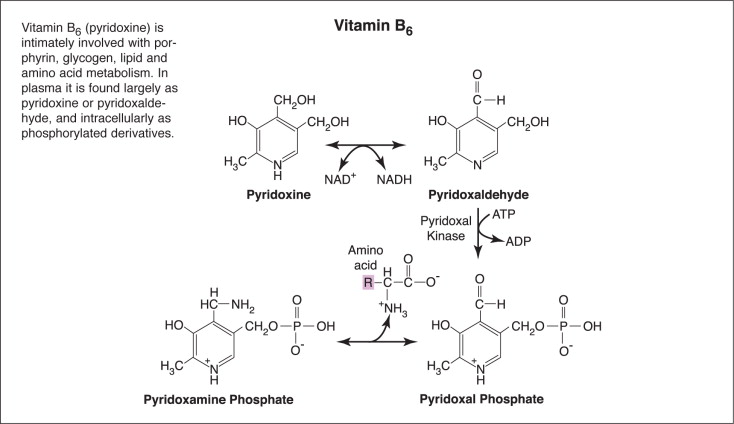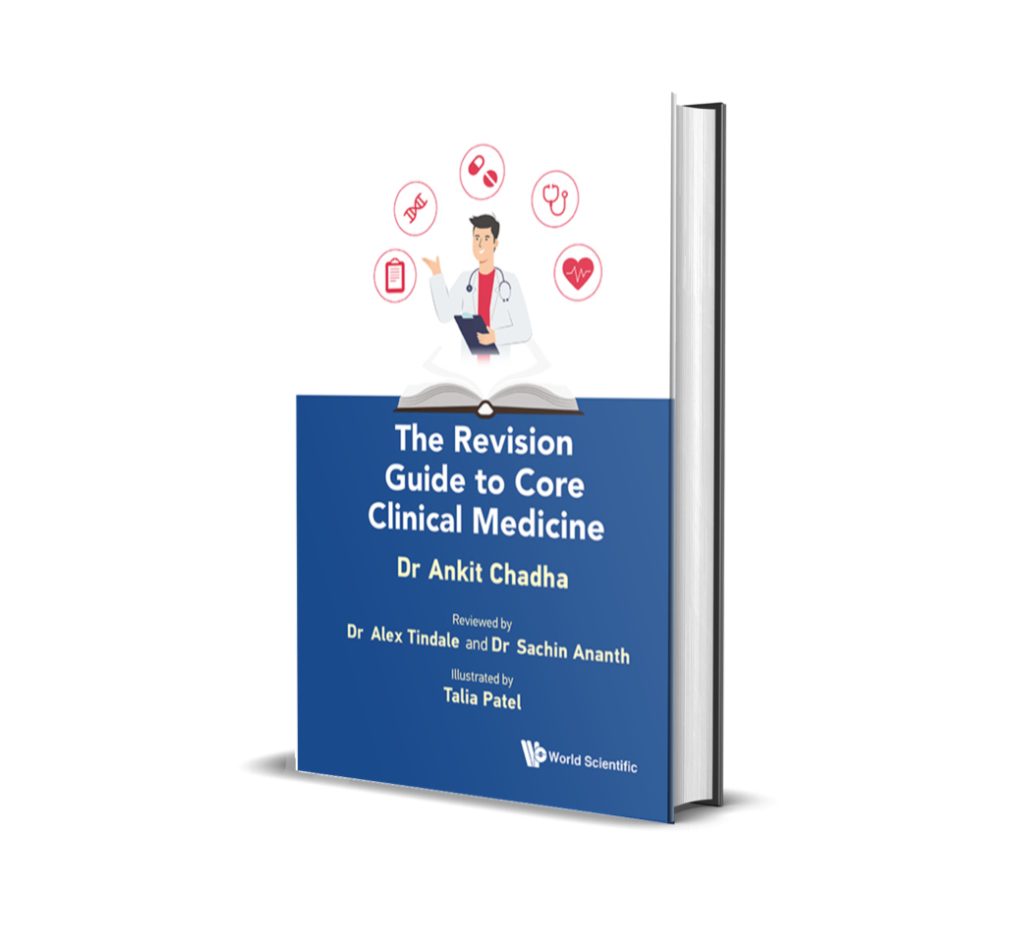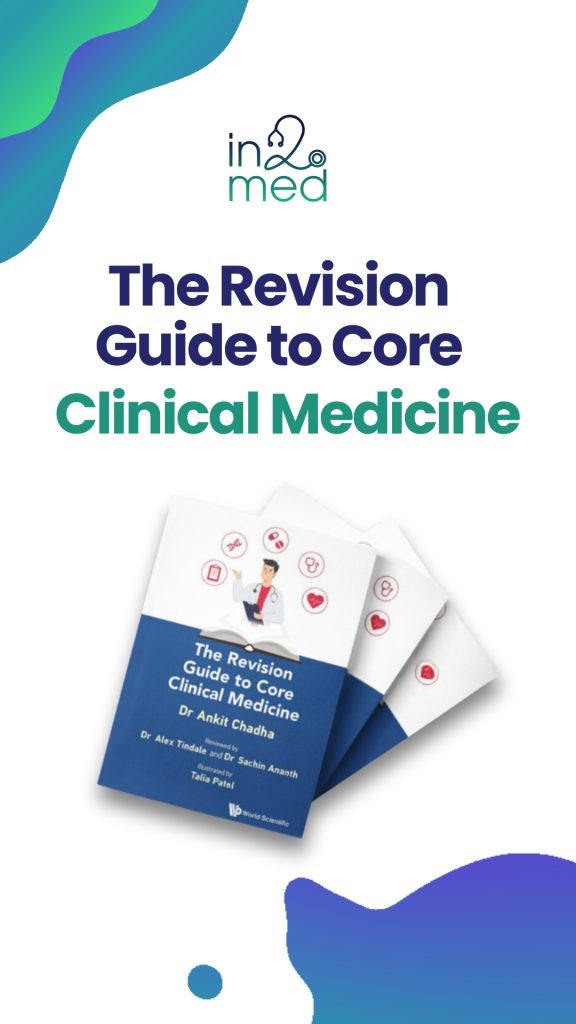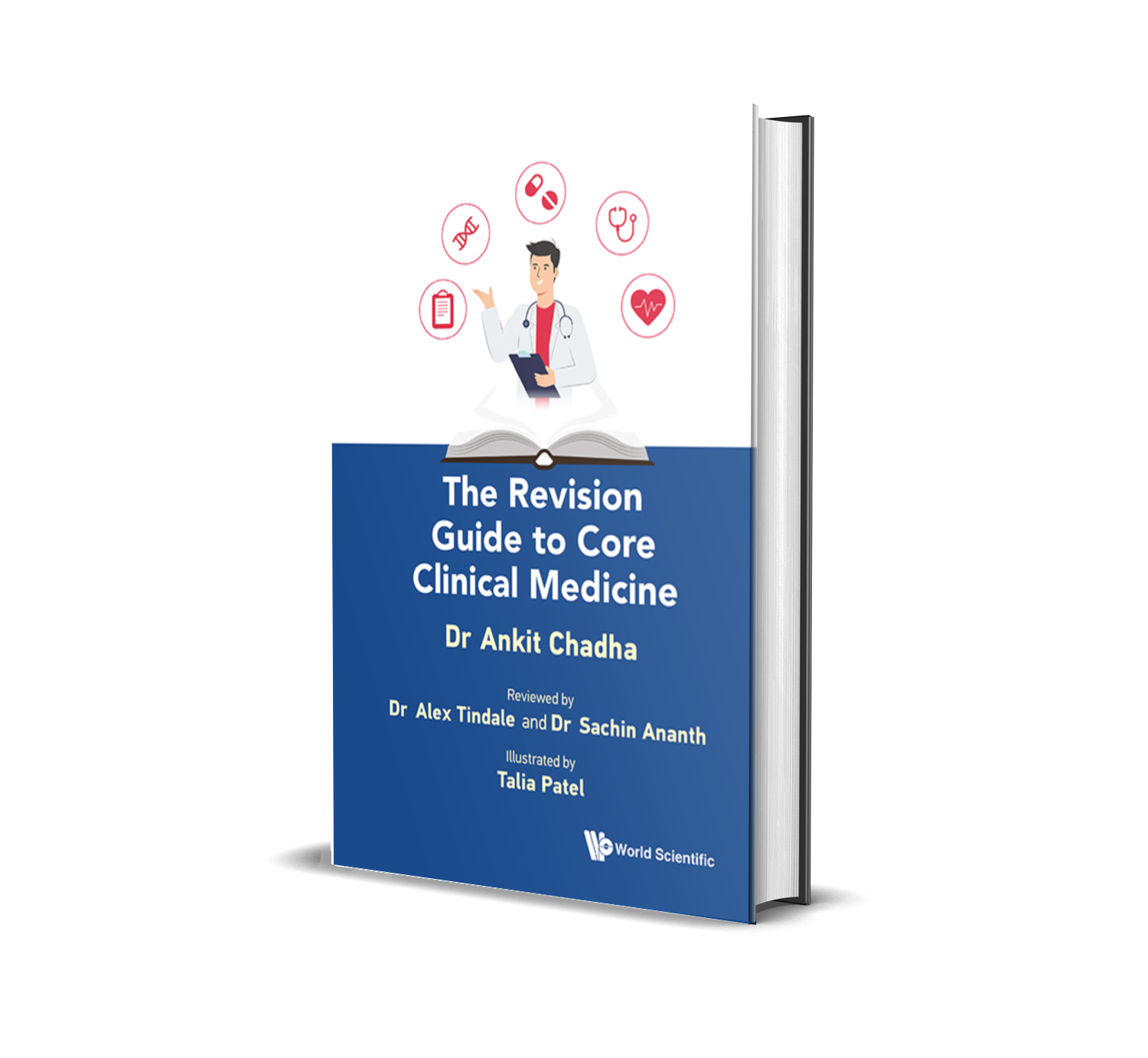Christmas giveaway
Dear Friend,
Happy Sunday to you. It’s so close to Christmas now and I hope you are all enjoying in the festivities. This week, I am writing my newsletter from Tromso in Norway – have come on a short trip away to see the Northern Lights. The weather outside is about -5 degrees, so I’m layering up as much as possible.
This week I wanted to let you know about my CHRISTMAS GIVEAWAY. for a chance to win a free copy of my medical textbook, The Revision Guide to Core Clinical Medicine. All you have to do is the following:
- Follow the In2Med Instagram page – @in2meduk
- Like the Christmas Giveaway Post
- Tag 3 of your friends
- (Bonus entry if you also share the post on your story)
The winner will be announced on Christmas Eve!
That’s all from me this week. Time to go chase some northern lights.

Drug of the week
Pyridoxine
Pyridoxine is a form of vitamin B6 found commonly in food and used as a dietary supplement. It is required by the body to make amino acids, carbohydrates, and lipids.
Sources in the diet include fruit, vegetables, and grain.
As a treatment (oral or injection), it is used to treat or prevent pyridoxine deficiency, sideroblastic anaemia, pyridoxine-dependent epilepsy, certain metabolic disorders, side effects of isoniazid treatment and certain types of mushroom poisoning.

A Brain Teaser
A 30-year-old woman who is 26 weeks pregnant is admitted to the maternity unit with heavy vaginal bleeding. She is Rhesus negative.
What is the most appropriate management for prophylaxis of Rhesus sensitisation?
A: One dose of anti-D immunoglobulin, Keilhauer test not required
B: Routine anti-D immunoglobulin prophylaxis at 28 weeks
C: One dose of anti-D immunoglobulin followed by a Kleihauer test
D: No anti-D immunoglobulin required
E: Anti-D immunoglobulin infusion
Answers
The answer is C
This is a question about the prophylaxis of Rhesus sensitisation in a Rhesus negative Mother with antepartum haemorrhage.
Antepartum haemorrhage is associated with fetomaternal haemorrhage (FMH) and therefore an increased risk of Rhesus sensitisation and Rhesus disease of the newborn in subsequent pregnancies.
The correct answer is one dose followed by a Kleihauer test.
A Kleihauer test is a test for FMH which detects fetal cells in the maternal circulation and, if present, estimates the volume of FMH to allow calculation of additional anti-D immunoglobulin. According to BCSH guidelines, it is required for any sensitising event after 20 weeks gestation.
Although the routine prophylaxis at 28 weeks can and should still go ahead, anti-D needs to be given immediately. There is no such thing as an anti-D immunoglobulin infusion.
Source: British Committee for Standards in Haematology – guideline for the use of anti-D immunoglobulin for the prevention of haemolytic disease of the fetus and newborn.




